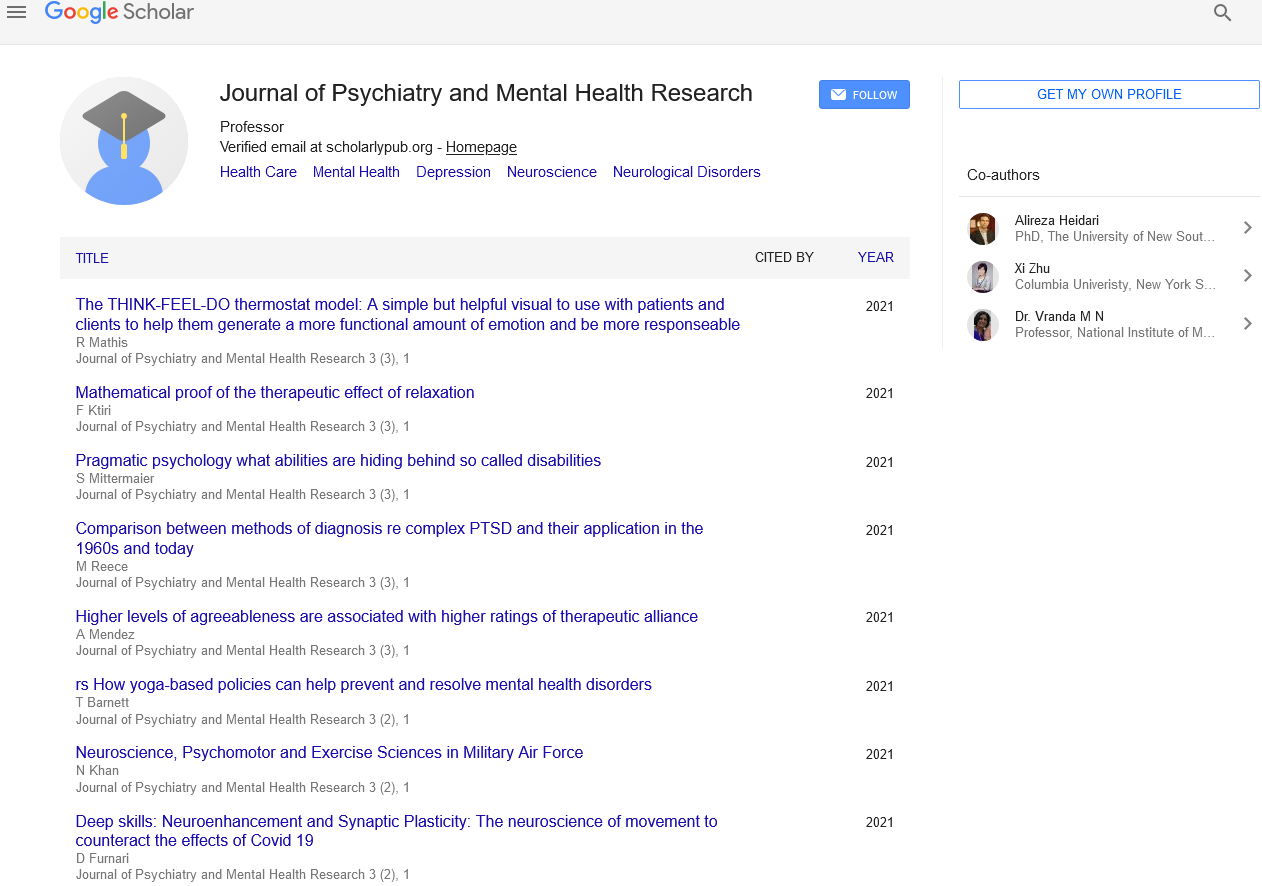
Sign up for email alert when new content gets added: Sign up
The relation between pattern of feeding and Behaviour & Mental Health Disorders among children
Webinar of 3rd World Congress on Mental Health & 8th International Conference on Brain Disorders and Therapeutics
February 03, 2022 | Webinar
Enas A.M. Abdurrahman, Tayseer M. Elzayat, Rania A. Hamed and Amira H. Hassan
Al-Azhar University, Egypt
Posters & Accepted Abstracts: J Psychiatry & Mental Health Research
Abstract :
Introduction: The benefits of breastfeeding are innumerable, such as a reduction in the risk of acute otitis media, gastroenteritis, severe lower respiratory tract infections, atopic dermatitis, asthma (young children), obesity, type 1 and 2 diabetes, childhood leukemia, additionally may reduce the risk of psychological and behavioral disorders among children. Aim: To evaluate the effect of pattern of feeding on behavioral and mental health disorders of school-age children. Patients and methods: This was a case-control comparative study that was carried out on a group of children aged from 6 to 12 years old divided into two groups; patient group 50 children that were diagnosed with behavioral and mental health disorders according to DSM 5 criteria of diagnosis were taken from outpatient psychiatry clinic of Al-Zahra Hospital University during the period from March 2020 to December 2020 & a control group apparently healthy children with no history of psychological manifestations matched in number, age and sex. Result: The mean age (8.4 ± 2.2 years), 15 were female (30.0%) and 35 were male (70.0%) with a highest percentage of attention deficit hyperactive disorder (ADHD) (68.0%) followed by obsessive-compulsive disorder (OCD) (22.0%), learning disorder (8.0%) and conduct disorder (CD) (2.0%) among the studied children. The majority of cases (29) were Mixed fed (58.0%), (11) were artificially fed (22.0%), and (10) were breastfed (20.0%) and there was a highly statistically significant between artificial (bottle) feeding and breastfeeding in ADHD and learning disorders. While the OCD is significant with a breastfeeding, duration of less than 6 months. In addition to; there was a highly statistically significant difference between the age of weaning at 3rd to 6th months and consumption of sugary foods at school age time in cases compared to the control group. Conclusions: Breastfeeding has been demonstrated that to be inversely associated to behavioral and mental health disorders as increase the duration of breastfeeding associated with decrease the incidence of psychological and behavioral disorders. Keywords: Behavioral, mental disorders, breast feeding, artificial feeding, mixed feeding.




